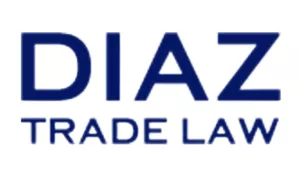The Department of Commerce's Bureau of Industry and Security (BIS) published its first quarterly update of the Boycott Requester List. The list notifies companies, freight forwarders, financial entities, and individuals of potential sources of boycott-related requests that they may receive.
Background on Boycott Requests
BIS is charged with enforcing anti-boycott laws under the Export Administration Regulations (EAR). The laws prohibit U.S. companies from taking actions in furtherance of a boycott maintained by a foreign country against a country friendly to the United States. Common boycott requests include:
- Requesting a certification that goods are not from a specific country
- Requesting that goods are not shipped to a certain country
- Requesting that a business does not engage with a particular country
U.S. persons must report boycott-related requests to BIS's Office of Anti-boycott Compliance (OAC).
Boycott Requester List
OAC maintains a boycott-requester list to raise awareness and assist U.S. persons in identifying sources of boycott-related requests.
Entities on the list have been reported by a U.S. person to BIS via a request report form. The list is updated quarterly but is not an exhaustive list of entities that may make these requests.
The most recent update to the list includes 57 additions and the removal of 127 entities.
Requesting countries added in the most recent update include:
- Afghanistan
- Algeria
- Bangladesh
- Germany
- India
- Iraq
- Japan
- Kuwait
- Malaysia
- Norway
- Oman
- Pakistan
- Saudi Arabia
- Singapore
- Switzerland
- United Arab Emirates
- Qatar
- Vietnam
Exporters have a duty to remain vigilant in spotting boycott-related requests and reporting them to BIS. Diaz Trade Law can help ensure your compliance program meets all EAR requirements.
Learn more:
- The Importance of Regular Export Compliance Training for your Business
- Building and Maintaining an Effective Export Compliance Plan
- Introduction to Export Controls
The content of this article is intended to provide a general guide to the subject matter. Specialist advice should be sought about your specific circumstances.


